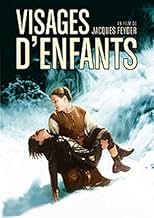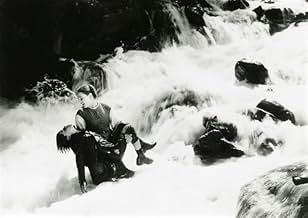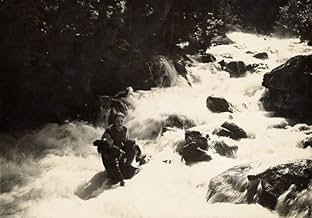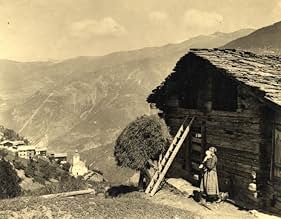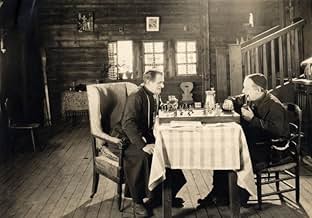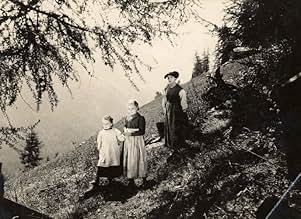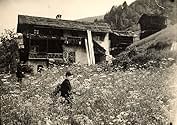Adicionar um enredo no seu idiomaA man whose wife has died remarries, and his new wife has a daughter of her own from a previous marriage. The man's young son, however, who loved his mother deeply and misses her terribly, r... Ler tudoA man whose wife has died remarries, and his new wife has a daughter of her own from a previous marriage. The man's young son, however, who loved his mother deeply and misses her terribly, resents his father's new wife, not wanting her to take the place of his beloved mother, and... Ler tudoA man whose wife has died remarries, and his new wife has a daughter of her own from a previous marriage. The man's young son, however, who loved his mother deeply and misses her terribly, resents his father's new wife, not wanting her to take the place of his beloved mother, and makes life miserable for his new stepsister..
- Direção
- Roteiristas
- Artistas
- Direção
- Roteiristas
- Elenco e equipe completos
- Produção, bilheteria e muito mais no IMDbPro
Avaliações em destaque
The film begins with a funeral. The Mayor's wife has just died--leaving him and his two children behind. After trying to make a go of it, the man realizes he needs a mother for his children and proposes to a local widow--who herself has a young daughter. But, unlike the Brady Bunch, this new blended family did not magically work out--as the parents, in hindsight, did a pretty lousy job of breaking this to the kids--in particular, the 12 year-old boy. It actually came to him as a bit of s surprise--and to make matters worse, they gave his old bedroom to his new step-sister and sister. You could understand how the kid could feel alienated. Over the next few months, the boy (Jean) had a hard time adjusting. Much of his anger was displaced on his step-sister. Ultimately, this resulted in two near-tragedies.
Overall, a very good story that doesn't get too schmaltzy and has a lot of nice action. Well-paced, nice cinematography and very good acting by the children--this one is well worth seeing.
By the way, while it doesn't significantly harm the picture, like many of the silents, a small portion of the film has severely degraded. This is very normal and the damage is minimal but pretty obvious when it occurs. The old nitrate film stock was very unstable and tended to turn to powder, liquefy or even explode!
I just wonder how long time did they have for shooting the film.
What can I say, whosoever has the chance to see it, highly recommended!
This excellent silent is almost derailed in the early running. Specifically, it is when young Jean is determined too sensitive to attend his father's second marriage and sent off to live with his godfather (Henri Duval). The kindly priest's mission is to break the news to Jean gently, and return him within a month. It ends with Mr. Duval dropping Jean off some distance from his house; the boy walks home, alone and unannounced. Then Duvall, presumably a close family friend, is not seen again. All in all, this is a strange way for the adults in this drama to treat a child. It illustrates isolation, of course, but could have been left out or done more eloquently...
However, there are no problems understanding this story. In the opening, director Jacques Feyder crushes the screen with the dead mother's coffin, which we see through the eyes of her son. The death of a parent and introduction of a replacement has a profound effect on young Jean. We feel the full weight of that casket. Performers, especially the children, are captured acting naturally. Location photography of the Swiss Alps is beautiful, especially as set up and angled by Mr. Feyder and his crew. The indoor/outdoor sets are terrific, also. And, the ending approaches D.W. Griffith's "Way Down East" (1920) in icy edited excitement.
******** Visages d'enfants (1/24/25) Jacques Feyder ~ Jean Forest, Victor Vina, Rachel Devirys, Henri Duval
In another comment, Gerald A. DeLuca calls this is a movie about "sin, repentance and forgiveness", and certainly, Christian religiousness thoroughly shapes both the cultural context of the story and the feelings of all the characters in situations of doubt, fear and distress. Yet, this is much more than a "Christian morality tale".
In Christian tradition, there are two stories about the origin of sin: Eva and Adam and Kain and Abel. On first sight, the story of Jean and Arlette is somewhat similar to the story of Kain and Abel: It's a story about hate among brothers and sisters, about envy and jealousy. Yet, in Kain and Abel, jealousy is the primordial sin, an evil reaction to incomprehensible or unjust behavior of God.
Not so in "Visages d'enfants": there is no primordial sin in the movie. All the characters are capable of love and understanding, none of them is actually evil or cruel. In that respect, it is quite humanistic, in spite of the ubiquitous religiosity. Where, then, does sin come from? The origins shown in the movie are surprisingly simple: plain misunderstandings, subtle and unconscious inattentiveness to the feelings of others, well-intentioned behavior all the same hurtful to other's feelings, and to a large extent: fear and pain.
The ultimate cause of the drama is obviously Pierre's failure to adequately address his son's intense mourning. But my impression is that the father is above all afraid and feeling helpless. In particular, he is afraid that he won't be able to stand a solitary life for long, he is afraid that he won't be able to cope with the household work beside his duties as the mayor of the village, he is afraid that he won't be able to show enough of his love towards his two children, he is afraid of losing patience with them as indeed sometimes he does, he is afraid of failing his children's' education. His courage is sufficient to tell the priest about part of his anxieties, but he lacks the strength to show weakness in front of his son. All those small weaknesses, failures and misunderstandings are extremely beautifully and convincingly depicted in the movie and you also see again and again how small hurts done breed mistrust, malice and hate, and hate breeds new hate, getting worse and worse.
In Christian tradition, the remedy to sin is remorse, confession, prayer and penance; and ultimately, trust in divine mercy. In the film, there is indeed remorse, in particular in Jean. Confession is not done in front of God, but in front of other human beings. Prayers do not ask for divine pardon, but for help in earthly distress. There is no trace of penance at all. Salvation does not arise out of divine, but out of human mercy and love.
Of course, overcoming evil by means of forgiveness and love is a central concept of Christianity. Yet, Jean and his family need remarkably little help from God: No doubt, they do pray hard for divine help, but they are most successful when they act themselves in human, pitiful, and in particular in courageous ways. They prevent tragedies when they overcome their pride and fear, they find help when run they for it, they save lives when they put their own life at stake, they find love when they save their enemies.
In Christian tradition, even more than jealousy, the origin of sin is alienation from God, the decision of Woman and Man to live their own life, to gain knowledge by themselves, not to respect the limits that God set them. Ultimately, that's why only God can save them in the end. But in this film, people save themselves by overcoming their own weaknesses and finding their own strength, compassion and love.
Você sabia?
- CuriosidadesThe film was an artistic success but a terrible commercial failure, causing the bankruptcy of Mundus Film. As for de Zoubaloff, he moved into the radio set selling while Porchet became the technical manager of the Swiss Film Office.
- ConexõesFeatured in Cinema Europe: The Other Hollywood: The Music of Light (1995)
Principais escolhas
Detalhes
- Data de lançamento
- Países de origem
- Centrais de atendimento oficiais
- Idiomas
- Também conhecido como
- Mother
- Locações de filme
- Empresas de produção
- Consulte mais créditos da empresa na IMDbPro
- Tempo de duração
- 1 h 54 min(114 min)
- Cor
- Mixagem de som
- Proporção
- 1.33 : 1

